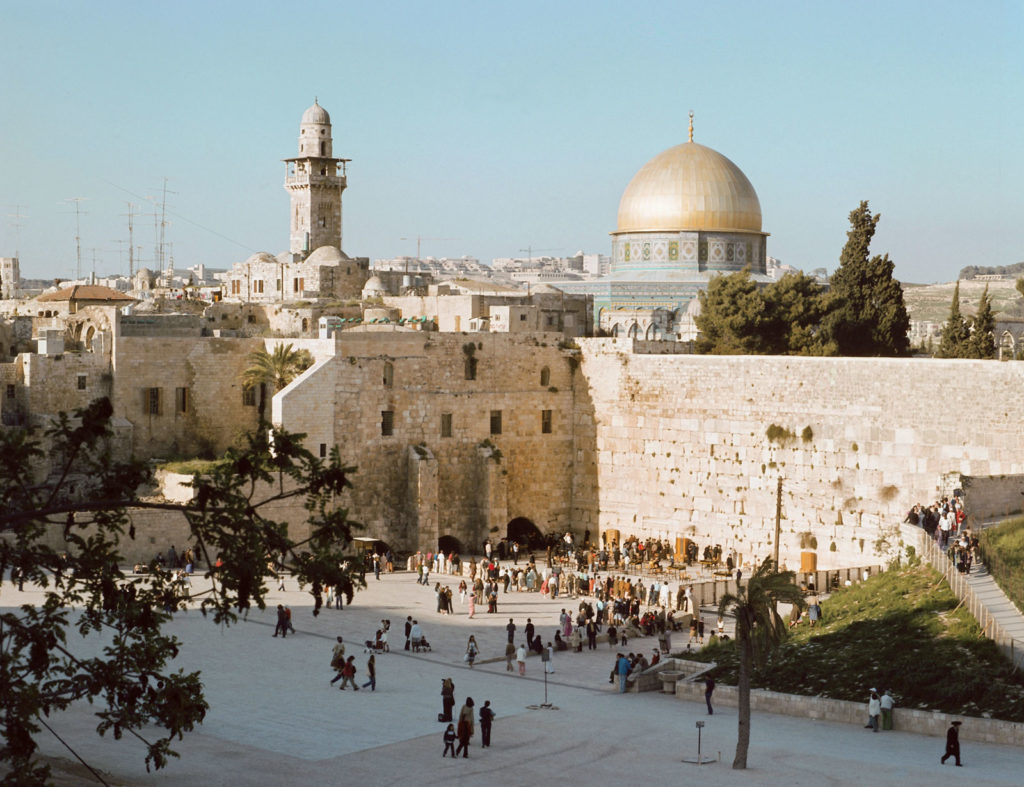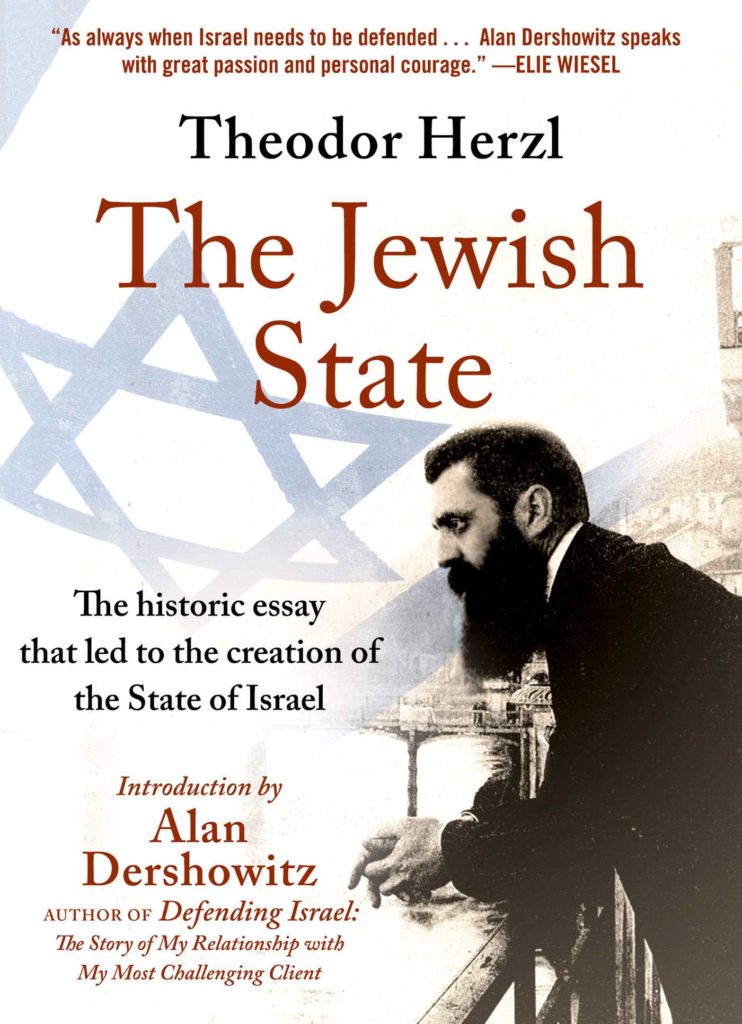It is not or not only the hatred of Jews that is causing the intractability of the conflict in the Middle East. It is the existence of the state of Israel, the character of the state and the history of its creation.
As most people may know Israel is a modern creation. The early history of the territory is unclear. Modern archaeology has largely discarded the historicity of the narrative in the Torah concerning the patriarchs, The Exodus, and the conquest of Canaan described in the Book of Joshua, and instead views the narrative as constituting the Israelites’ national myth. During the Late Bronze Age (1550–1200 BCE), large parts of Canaan formed vassal states paying tribute to the New Kingdom of Egypt, whose administrative headquarters lay in Gaza. Ancestors of the Israelites are thought to have included ancient Semitic-speaking peoples native to this area, among them Arabs. But the ethnicity of the people that lived in the area three thousand years ago is not identical with the people today. Different ethnicities like Phoenicians, philistines some of which have vanished to day or been absorbed into other ethnicities, some were proto-Arabs and some were proto-Jews preceding the ethnicities of today.
There is well-accepted archaeological evidence referring to “Israel” in the Merneptah Stele which dates to about 1200 BCE. There is a debate about the earliest existence of the Kingdoms of Israel and Judah and their extent and power, but historians and archaeologists agree that a Kingdom of Israel existed by ca. 900 BCE and that a Kingdom of Judah existed by ca. 700 BCE. The Kingdom of Israel was destroyed around 720 BCE, when it was conquered by the Neo-Assyrian Empire. The kingdom of Judah was conquered in 586 BCE by King Nebuchadnezzar II of Babylon. According to the Hebrew Bible, he destroyed Solomon’s Temple and exiled the Jews to Babylon. The Second Temple was constructed around 520 BCE. As part of the Persian Empire, the former Kingdom of Judah became the province of Judah with different borders, covering a smaller territory. Later Judah became a part of the Roman Empire by the name of Judea. Jewish presence in the region significantly dwindled after the failure of the Bar Kokhba revolt against the Roman Empire in 132 CE. Nevertheless, there was a continuous small Jewish presence and Galilee became its religious center. The region came to be populated predominantly by Greco-Romans on the coast and Samaritans in the hill-country. Christianity was gradually evolving over Roman Paganism, when the area stood under Byzantine rule. Through the 5th and 6th centuries, the dramatic events of the repeated Samaritan revolts reshaped the land, with massive destruction to Byzantine Christian and Samaritan societies and a resulting decrease of the population. After the Persian conquest and the installation of a short-lived Jewish Commonwealth in 614 CE, the Byzantine Empire reconquered the country in 628.

In 634–641 CE, the region, including Jerusalem, was conquered by the Arabs who had recently adopted Islam. Control of the region transferred between the Rashidun Caliphs, Umayyads, Abbasids, Fatimids, Seljuks, Crusaders, and Ayyubids throughout the next three centuries. During the siege of Jerusalem by the First Crusade in 1099, the Jewish inhabitants of the city fought side by side with the Fatimid garrison and the Muslim population who tried in vain to defend the city against the Crusaders. At this time, a full thousand years after the fall of the short-lived Jewish state, there were small Jewish communities all over the country. Fifty of them are known and include Jerusalem, Tiberias, Ramleh, Ashkelon, Caesarea, and Gaza. In 1211, the Jewish community in the country was strengthened by the arrival of a group headed by over 300 rabbis from France and England. In 1516, the region was conquered by the Ottoman Empire; it remained under Turkish rule until the end of the First World War, when Britain defeated the Ottoman forces and set up a military administration across the former Ottoman Syria.
From these sketches of history it can be seen that a state of Israel had existed for a short while some two thousand years ago but that Jewish communities had lived in the area over time as parts of different non-Jewish kingdoms and empires. If compared to other communities especially Arabs, Jews have always been a rather small group. Since the existence of the earliest Jewish diaspora, many Jews have aspired to return to “Zion” and the “Land of Israel” though the amount of effort that should be spent towards such an aim was a matter of dispute. The hopes and yearnings of Jews living in exile are rather an important theme of the Jewish popular belief system and folklore.
The stage for the ensuing drama was set when territorial nationalism was spreading in Europe and reaching other parts of the world during the second half of the 19th c. The breaking down of kingdoms and empires that had existed during the Middle Ages brought the need for a new territorial consolidation in Europe. The spread of printing and the occurrence of printed pamphlets and books brought about a much stronger and wider spread of ideas and ideologies than at any time before, among them the idea of nation that needs a national state with fixed borders and a common national ideology. Theodor Herzl, an Austro-Hungarian Jew born in Pest (today Budapest) in 1860 (died 1904) was a journalist, political activist, and writer who became the father of modern political Zionism. Herzl formed the Zionist Organization and promoted Jewish immigration to Palestine in an effort to form a Jewish state. In his book “Der Judenstaat” (the Jewish state) published in 1896 he writes: “We are naturally drawn into those places where we are not persecuted, and our appearance there gives rise to persecution. This is the case, and will inevitably be so, everywhere, even in highly civilised countries see, for instance, France so long as the Jewish question is not solved on the political level.” This new political ideology was called “Zionism” It was and is a nationalist movement among the Jewish people that espouses the re-establishment of and support for a Jewish state centred in the area roughly corresponding to Canaan, or the region of Palestine. Midwife of the Jewish state in Palestine, a territory inhabited mainly by Arabs, became the British with their Balfour Declaration of 1917 that endorsed the creation of a Jewish state on their mandated territory.

Jewish migration to Palestine and widespread Jewish land purchases from landowners or just taken over contributed to landlessness among Palestinian Arabs, fuelling unrest. Riots erupted in Palestine in 1920, 1921 and 1929, in which both Jews and Arabs were killed. Britain was responsible for the Palestinian mandate and, after the Balfour Declaration, it supported Jewish immigration. During Hitler’s rule Palestine became the destination for Jews expelled by fascism from Europe. In 1947, the United Nations Special Committee on Palestine recommended that western Palestine should be partitioned into a Jewish state, an Arab state and an UN-controlled territory, Corpus separatum, around Jerusalem. This partition plan was adopted but the vote led to protests in Arab communities throughout Palestine. Violence throughout the country spiralled into the 1947–1949 Palestine war. The conflict led to an exodus of about 711,000 Palestinian Arabs. More than a quarter had already fled prior to the declaration of the State of Israel and the start of the 1948 Arab–Israeli War. Later, a series of laws passed by the first Israeli government prevented Palestinians from returning to their homes, or claiming their property. They and many of their descendants remain refugees.
Ever since more Arabs have been expelled from their land and consecutive wars in 1967, 1973 and intefadas have killed thousands of Palestinians and have incarcerated those left in tiny ever diminishing patches of land, never secure from eviction. A two-state solution was agreed upon with the 1993–1995 Oslo Accords, but until today the Palestinians remain subject to Israeli military occupation in the Gaza Strip and in 165 “islands” across the West Bank. Key issues that have stalled further progress are security, borders, water rights, control of Jerusalem, Israeli settlements, Palestinian freedom of movement, and Palestinian right of return. As Jews all over the world support the Zionist idea despite them opting to live outside Israel Arabs and Muslims all over the world support the right of their brethren to security of home and life in a Palestinian state. So it is anti-Zionism we are talking about here.




